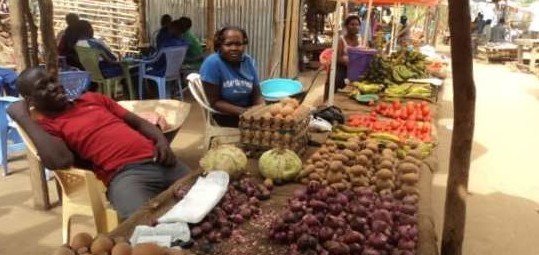The Central Equatoria State chamber of commerce has expressed concern over rising commodity prices even as the truckers ended their strike and resumed transporting goods into the country.
Foreign truck drivers mostly from Kenya, Uganda, and Somalia were on strike and parked their vehicles at the border for close to two weeks citing insecurity, extortion, and killing of colleagues by elements of the armed forces along the Juba-Nimule highway. The drivers demanded that the South Sudan government formally guarantee their security, remove illegal checkpoints and stop multiple taxations.
Speaking during a press conference Wednesday in Juba, the chairman of the Central Equatoria chamber of commerce, Robert Pitia Francis, said there is a significant increase in prices of fuel and other commodities like sugar, flour, and cooking oil.
“There is no logical reason for the high prices since the (truckers) sit-in has been called off,” Pitia appealed. “Now fuel is available in Juba and most of the petrol stations have fuel, let us go to the previous prices that we had before the strike.”
He revealed that the price of a 50 kg bag of maize flour had jumped from 10,000 to 13,000 SSP, 50 kg of white sugar from 20,000 to 26,000 SSP, and 20 liters of cooking oil went up from 10,000 to 15,000 SSP. “This is too much,” Pitia said.
He urged the government to empower local companies to import fuel instead of relying on foreigners who he said: “are controlling our economy”.
Taban Zachariah, a trader in the Konyo-Konyo market in Juba, admits that there was a marked increase in commodity prices, especially food, but blamed it on the strike by drivers of heavy goods vehicles.
“I am sure the prices will get back to their previous point soon,” Zachariah said.
Professor William Moro said providing security along Juba-Nimule road alone will not solve the problem but that the government needs to empower local traders.
“The security guarantee could help settle the situation,” Prof. Moro said. “The government needs to encourage the national traders in importing fuel and food as well.”




